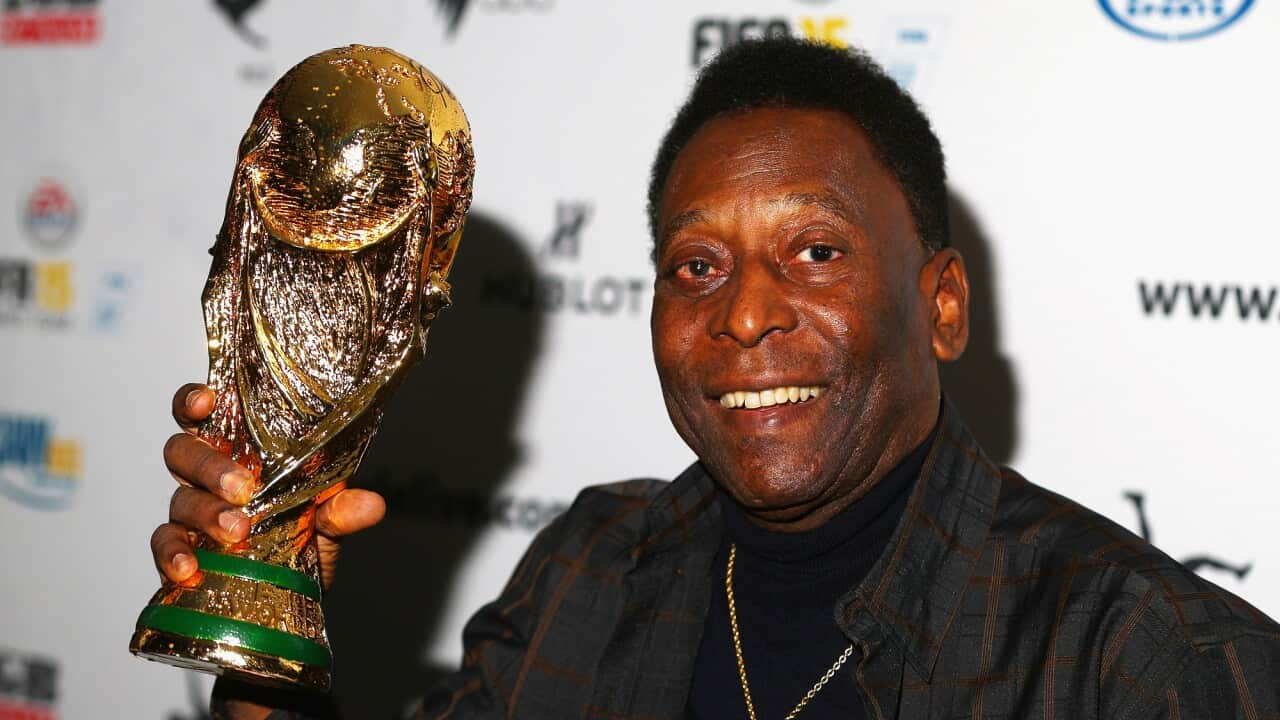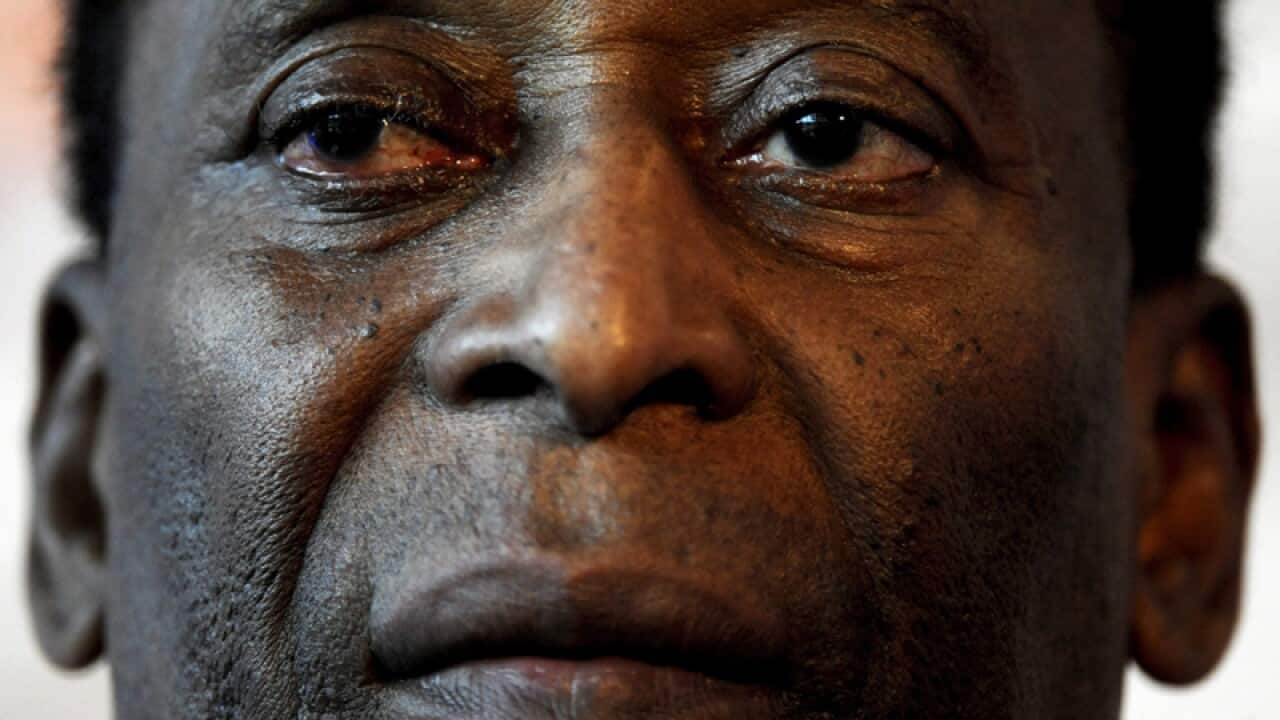Key Points
- Pele was undergoing treatment at Albert Einstein hospital in Sao Paulo.
- Pele's daughter announced his passing on social media.
- In a glorious 21-year career, he scored 1,283 goals.
Pele is being mourned around the world after his death at the age of 82.
His passing at Sao Paulo's Albert Einstein hospital where he was receiving chemotherapy was confirmed on his Instagram account
"Inspiration and love marked the journey of King Pele, who peacefully passed away today," it read, adding he had "enchanted the world with his genius in sport, stopped a war, carried out social works all over the world and spread what he most believed to be the cure for all our problems: love."
From poverty to fame
Pele, whose given name was Edson Arantes do Nascimento, joined Santos in 1956 and turned the small coastal club into one of the most famous names in football.
He took home three World Cup winner's medals, the first time as a 17-year-old in Sweden in 1958, the second in Chile four years later - even though he missed most of the tournament through injury - and the third in Mexico in 1970, when he led what is considered to be one of the greatest sides ever to play the game.
The A-League will pay tribute to Pele with a moment of applause before each men's and women's game this weekend.
An A-League spokesperson told AAP the leagues felt applause was a more fitting way to celebrate Pele's career than a traditional moment of silence.

Brazilian legend Pele (left) and Argentinian great Diego Maradona in Zurich, Switzerland, on 10 June 1987. Source: AAP / STR/EPA
Macarthur FC coach and former Manchester United forward Dwight Yorke said he was privileged to have crossed paths with Pele.
"In the football fraternity, it's a huge loss for us because he's been not just iconic but certainly a role model for all of us," Yorke said.
"Obviously winning three World Cups, I don't think that will ever be repeated again. He was not just that, but also an individual with great integrity and a great human being.
"Pele set the benchmark for all of us to try and emulate."
Pele's visits to Australia remembered
Pele played his one and only match in Australia half-a-century ago but the occasion is still remembered.
Pele played for Santos, his club side, against the Australian national team in Sydney in June 1972 at the old Sydney Sports Ground.
Nearly 32,000 watched a 2-2 draw in which the Socceroos denied Pele a goal, though he did peg one back for the visitors.
After his retirement, Pele made several trips to Australia, usually in a promotional capacity.
In 1990 he was mobbed in Sydney and Melbourne with fans queuing for hours to buy autographed books.
One of the more remarkable aspects is how many children - who could never have seen him play - were present.
A $200-a-head black tie dinner at the Sydney Football Stadium was attended by the likes of Craig Johnston and Johnny Warren - who was involved in the Australian arm of Pele's kids' soccer schools - as well as cricket's Chappell brothers.
Ian Chappell said at the time, "I have been fortunate to meet with and socialise with many great sportsmen and women, and play against them, but think he is the most impressive sportsman I have ever come across in my life."
'Athlete of the Century'
In a glorious 21-year career, he scored 1,283 goals.
Pele, though, transcended football, like no player before or since, and he became one of the first global icons of the 20th century.
With his winning smile and an aw-shucks humility that charmed legions of fans, he was better known than many Hollywood stars, popes or presidents – many if not most of whom he met during a six-decade-long career as player and corporate pitchman.
He credited his one-of-a-kind mix of talent, creative genius and technical skill to a youth spent playing pick-up games in small-town Brazil, often using grapefruit or wadded-up rags because his family could not afford a real ball.
Pele was named "Athlete of the Century" by the International Olympic Committee, co-"Football Player of the Century" by world football body FIFA, and a "national treasure" by Brazil's government.
His celebrity was often overwhelming. Grown adults broke down crying in his presence with regularity. As a player, souvenir-seeking fans often rushed the field following games and tore off his shorts, socks and even underwear.

Pele, in a dancing mood, during a news conference in the trophy room at the new Manchester United Football Club Museum. Source: AAP / Owen Humphreys
Yet even in unguarded moments among friends, he rarely complained. He believed that his talent was a divine gift, and he spoke movingly about how soccer allowed him to travel the world, bring cheer to cancer patients and survivors of wars and famine, and provide for a family that, growing up, often did not know the source of their next meal.
"God gave me this ability for one reason: To make people happy," he said during a 2013 interview with Reuters. "No matter what I did, I tried not to forget that."










